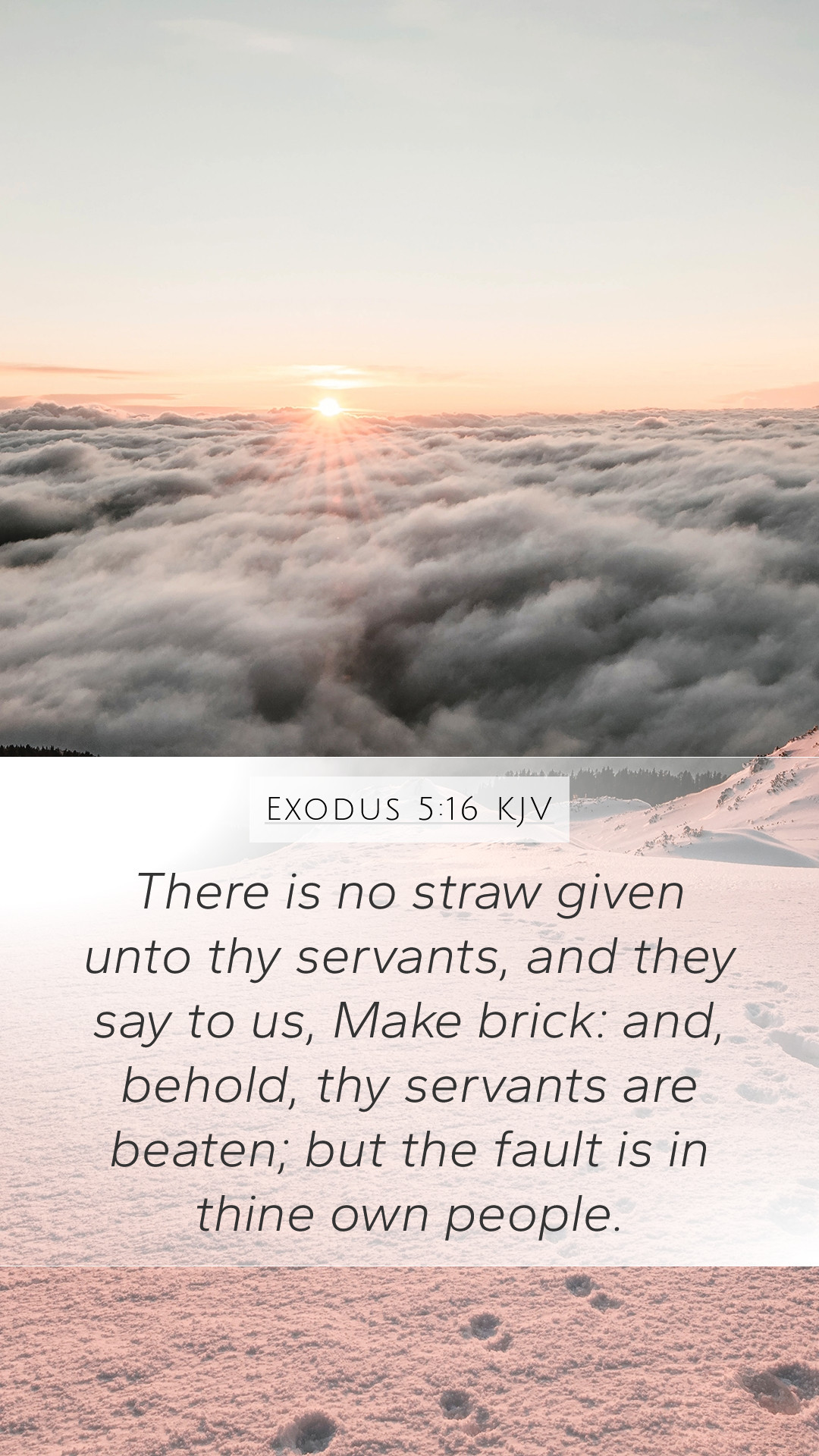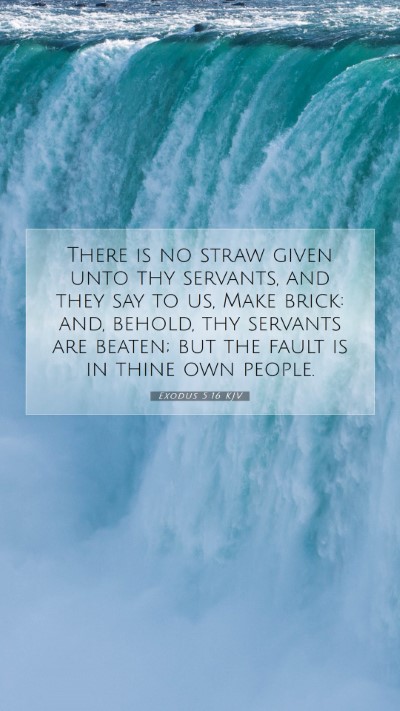Understanding Exodus 5:16
Exodus 5:16 states: "There is no straw given unto thy servants, and they say to us, Make brick: and behold, thy servants are beaten; but the fault is in thine own people." This verse reflects the deep anguish of the Hebrew slaves who, despite their hard labor, are facing punishment for not meeting the demands set upon them by Pharaoh.
Bible Verse Meanings
The meaning of this Bible verse can be grasped by considering the broader context of the Israelite's suffering under Egyptian bondage. It highlights the injustice and oppression they were enduring.
Bible Verse Interpretations
-
Historical Context: The book of Exodus narrates the story of Israel’s formation as a nation and their deliverance from slavery, which is also critical in understanding the trials they faced.
-
Spiritual Insight: The text emphasizes the suffering of God's people, drawing attention to the trials that are often a precursor to deliverance.
Bible Verse Commentary
When analyzing this verse through the lens of commentary:
-
Matthew Henry: He suggests that the burdens imposed upon the Israelites were cruel and that their plight illustrates mankind’s suffering in a fallen world. The lack of straw for making bricks symbolizes how the oppressor makes demands that are impossible to fulfill.
-
Albert Barnes: Barnes comments on Pharaoh's cruelty, showing the illogical nature of the oppression faced by the Israelites, as they are being punished for failing to produce results when the means to do so are withdrawn.
-
Adam Clarke: Clarke points out that the Israelites were caught between their harsh labor and the unyielding demands of Pharaoh, showcasing a scenario of increased burdens without corresponding support.
Bible Study Insights
This verse serves as a crucial part of the Exodus narrative, indicating the extreme conditions under which the Israelites labored. It serves as a significant passage for those seeking Bible study insights into the plight of an oppressed people.
Scripture Analysis
Within this analysis, one can identify themes of suffering, injustice, and the struggle for freedom.
Significance of the Cry
The cry of the Israelites represents all oppressed communities, echoing the universal quest for justice and relief from oppression.
Application of the Verse
For modern readers, Exodus 5:16 can be applied to understand the nature of suffering in our lives and the importance of standing up against injustice.
Impact on Daily Life
Understanding this verse can inspire individuals and groups, such as bible study groups, to engage with the struggles of those who are marginalized, including action-oriented community support.
Cross References
- Exodus 1:14: Describes the bitterness of Israelite bondage.
- Exodus 3:7: God expresses awareness of Israel’s suffering.
- Psalm 34:19: "Many are the afflictions of the righteous, but the Lord delivers him out of them all." This verse offers an encouragement that does not ignore suffering but affirms deliverance.
Conclusion
This verse encapsulates a moment of profound distress, reflecting not only the historical context of the Israelites but also the spiritual truths that can apply to burdens faced by modern readers. Through bible verse interpretations and careful Biblical exegesis, one can glean valuable lessons on resilience, faith, and the quest for justice.


